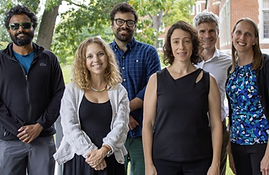%20(1)_edited.jpg)
INDIGENOUS RESILINECE AND INNOVATION LAB
"Voices Lead.. Science Follows.."

WHO WE ARE
The Indigenous Resilience and Innovation (IRI) Lab is dedicated to advancing community-engaged research at the intersection of climate, food, and health. Rooted in collaborative partnerships, we work alongside Indigenous communities to co-produce knowledge that informs sustainable, culturally grounded solutions to contemporary challenges.
We focus on co-developing solutions that enhance resilience, ensuring that research is not just about Indigenous peoples—but led with and for Indigenous communities. Through partnerships in the Canadian Arctic, Sri Lanka, and beyond, we strive to bridge knowledge systems, influence policy, and create meaningful impact.
At IRI Lab, we prioritize ethical, participatory, and community-led research, fostering long-term relationships that empower people and contribute to global conversations on resilience and adaptation.
Join us as we work towards a future where Indigenous perspectives lead the way in shaping sustainable solutions for a changing world.
WHAT WE DO
Co-Producing Knowledge
Supporting Adaptation & Resilience
Building Ethical Partnerships
We collaborate with Indigenous communities to co-design and conduct research that reflects local priorities, values, and knowledges. Our work bridges traditional knowledge systems and academic research to support sustainable, culturally grounded solutions.
Through community-led studies and partnerships, we help identify challenges related to climate, food, and health—and co-develop adaptation strategies that strengthen community resilience in a changing world.
We are committed to long-term, respectful, and reciprocal relationships with communities. Our work emphasizes ethical research, capacity building, and amplifying Indigenous voices in both local and global policy conversations.
OUR IMPACT
8 Indigenous communities
5000+ Indigenous people
17 Countries
We work in partnership with Indigenous communities across the Global North and Global South, specifically in Sri Lanka and the Canadian Arctic. Our work includes six partnerships in Sri Lanka and two in the Canadian Arctic.
Building on partnerships with eight Indigenous communities, our work has reached more than 5,000 Indigenous people across the Global North and Global South through community-led research and engagement.
We are scaling up our findings through IPON (Indigenous Peoples Observatory Network) to 17 countries, expanding Indigenous-led partnerships and strengthening global impact.
 |  |  |  |
|---|---|---|---|
 |  |
_edited_edited_edited.png)







